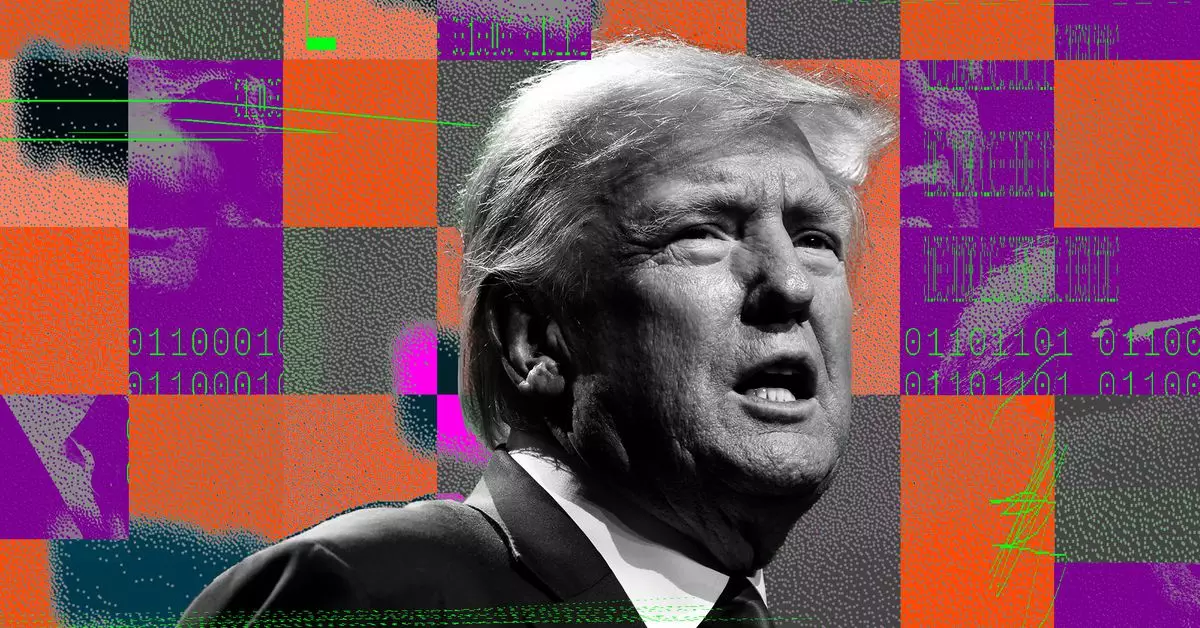In a disturbing development that underscores the ongoing threat of cyber warfare, the U.S. Department of Justice (DOJ) has recently issued charges against three Iranian nationals for their involvement in a cyberattack targeting Donald Trump’s presidential campaign. According to the indictment released on Friday, these individuals, allegedly affiliated with Iran’s Islamic Revolutionary Guard Corps (IRGC), executed a sophisticated operation that leveraged social engineering and spear phishing techniques. This maneuver was aimed at infiltrating the email accounts of campaign officials, thereby accessing sensitive, nonpublic campaign documents and communications.
The indictment reveals how the hackers gained unauthorized access to campaign accounts by employing a multi-faceted approach to deception. Spear phishing, a targeted phishing strategy designed to manipulate victims into revealing confidential information, played a crucial role in their methodology. Furthermore, the hackers’ association with Respina Networks—a purported Iranian internet service provider—provided them with “unrestricted” internet access, enabling them to operate outside the boundaries of Iranian cyber regulations. Utilizing commercial virtual private networks (VPNs), they created a network of deceptive domains like “tinyurl.ink” and “mailer-daemon.online,” which were instrumental in misleading their targets.
While the indictment conspicuously avoids naming the specific candidate targeted in the cyberattack, the Trump campaign has already publicly acknowledged experiencing a breach. This points to a potential intersection of cybersecurity issues and electoral integrity, raising questions about the robustness of measures taken to protect sensitive political operations. Despite the sensitive nature of the stolen documents, mainstream media outlets reportedly opted not to disseminate the acquired information. However, controversy emerged when independent journalist Ken Klippenstein released materials linked to vice presidential candidate JD Vance, resulting in his suspension from the platform X.
The charges levied against the three Iranian hackers include wire fraud, providing material support to a terrorist organization, and conspiring to access protected computers. These allegations paint a grave picture of how cyber operations have evolved into a method of obstructing democratic processes. Assistant Attorney General Matthew G. Olsen emphasized that these actions represent a clear attack on the integrity of American democracy, reflecting a broader strategy by Iranian state actors to leverage cyber capabilities against U.S. interests.
Looking Forward: Cybersecurity in the Political Sphere
In light of this incident, the U.S. Treasury Department has implemented a reward of up to $10 million for actionable intelligence regarding the whereabouts of the individuals charged. This move not only signifies a strong governmental response to cyber threats but also highlights the urgent need for an adaptive cybersecurity framework that can withstand evolving tactics employed by malicious actors. As technology continues to intertwine with politics, safeguarding sensitive information will remain a critical frontier in maintaining the ethical foundation of democratic governance. The stakes could not be higher, as the information wars intensify and the consequences of cyber intrusions become increasingly difficult to navigate.

